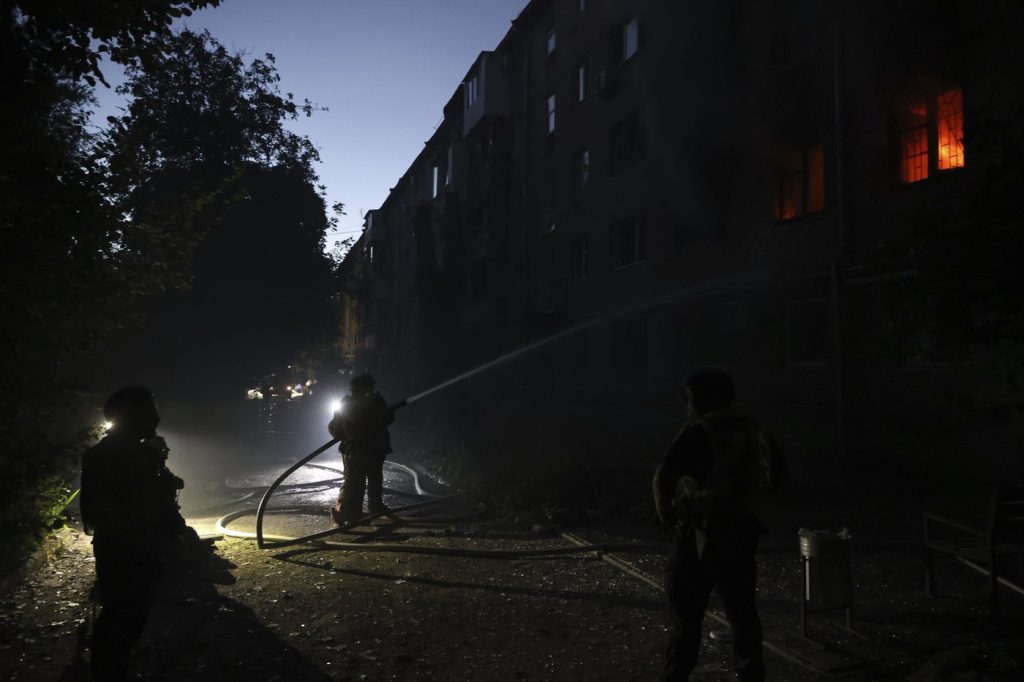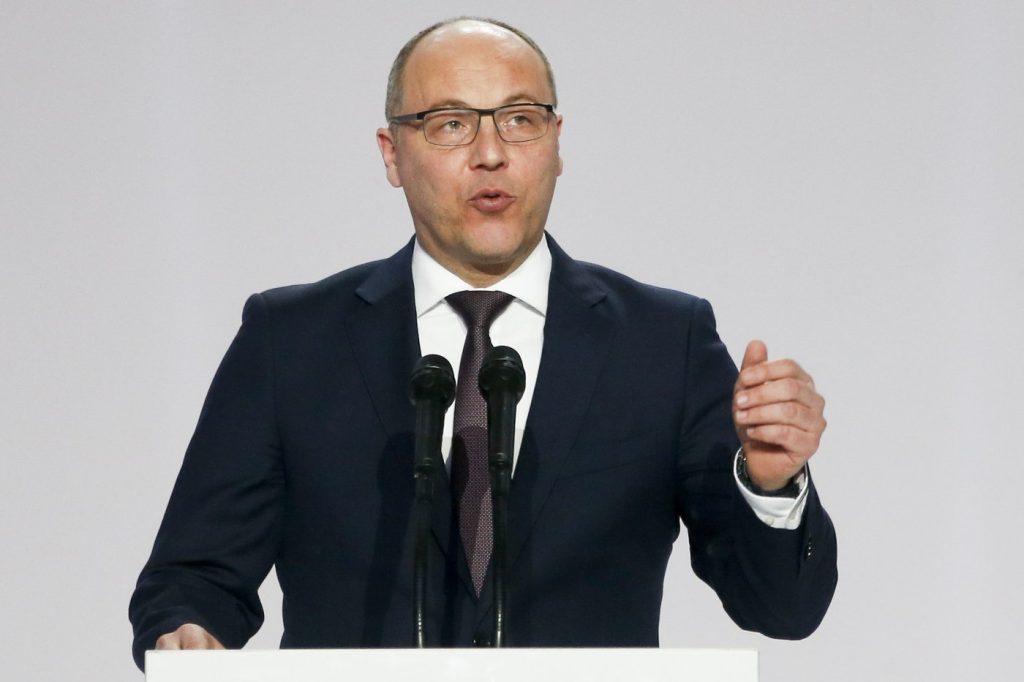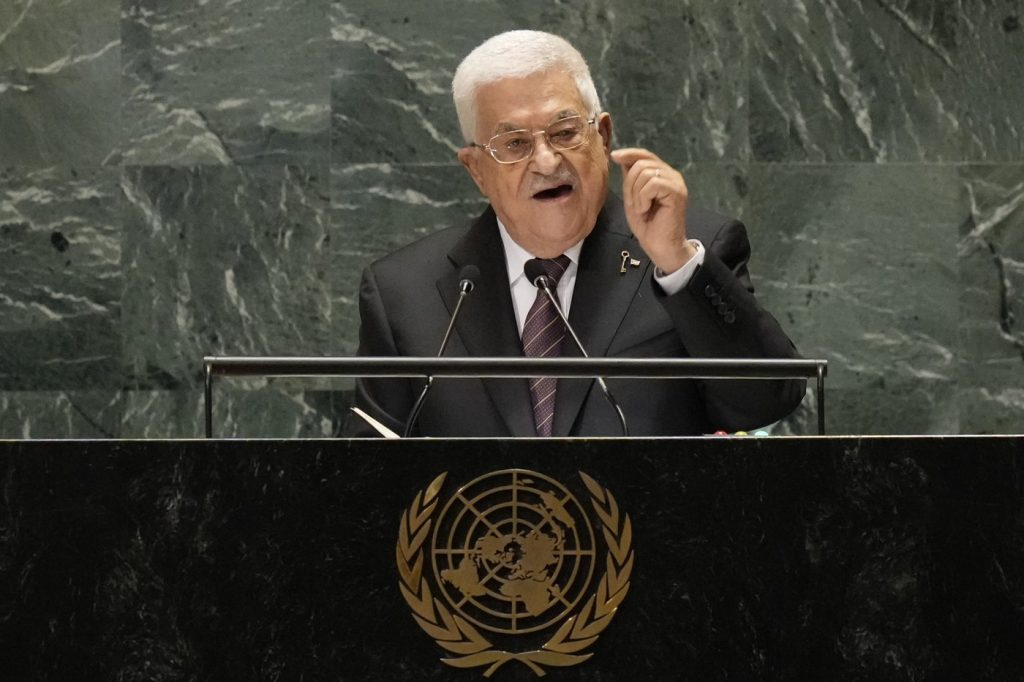KYIV, Ukraine (AP) — On Saturday, officials reported that Russia had launched a large-scale aerial assault on southern Ukraine. This attack occurred just two days after a rare airstrike on central Kyiv that claimed the lives of 23 individuals and resulted in extensive damage to European Union diplomatic offices. U.S.-led efforts to negotiate an end to the ongoing three-year war appeared to be stagnating.
The latest assault targeted several locations, including a five-story residential building in the Zaporizhzhia region, where at least one civilian was reported dead and 28 others, including children, were injured, according to Governor Ivan Fedorov. The Ukraine Air Force stated that Russia unleashed 537 strike drones and decoys, along with 45 missiles. Ukrainian forces managed to intercept or neutralize 510 drones and decoys and 38 missiles during the onslaught.
Despite the intensifying attacks, the Kremlin claimed on Thursday that it was still interested in pursuing peace talks. This statement came shortly after one of the largest and deadliest airstrikes during the ongoing conflict since Russia’s full-scale invasion in 2022. Notably, the recent strike on Kyiv was among the few instances where Russian drones and missiles directly struck the heart of the Ukrainian capital, leading to search and rescue missions for victims trapped under debris.
In a timely response to the escalating violence, hours following the Kyiv airstrike, the United States authorized an $825 million arms sale to Ukraine. This package includes extended-range missiles and supporting equipment aimed at enhancing Ukraine’s defensive capabilities. However, Washington’s attempt to broker peace between Ukraine and Russia appeared to be faltering, with both sides accusing each other of stalling negotiations.
Frustration regarding Russia's lack of constructive engagement was echoed by Ukrainian President Volodymyr Zelenskyy on Friday. While Ukraine had accepted a U.S. proposal for a ceasefire and a potential meeting between Zelenskyy and Russian President Vladimir Putin, Moscow raised objections to the plan. Former U.S. President Donald Trump stated last week that he would ascertain within two weeks whether Russia was genuinely serious about entering negotiations.
Concerns regarding Russia’s commitment to peace were reinforced by the recent reports from Ukraine’s European allies. They accused Putin of avoiding substantial negotiations while Russian forces continue to press deeper into Ukrainian territory. Trump recently expressed optimism that three-way talks among himself, Zelenskyy, and Putin would materialize, after meetings with both leaders earlier in the month.
Meanwhile, Russian General Valery Gerasimov claimed that Moscow's forces are conducting a "nonstop" offensive along nearly the entire 1,000-kilometer (620-mile) front line in Ukraine. Since March, Russian forces reportedly captured more than 3,500 square kilometers (1,351 square miles) of territory, along with 149 settlements. However, the situation on the battlefield remains challenging to verify independently.
In recent days, Ukraine ramped up its counter-offensive strategies by reportedly targeting Russian oil refineries that supply the Kremlin’s war efforts. Attacks were reported in the Krasnodar region near Crimea and the Samara region. Falling drone debris ignited a fire at one refinery, though it resulted in no casualties. The Ukrainian general staff noted that the dwindling supply of gasoline in certain Russian regions has led to rationing and long wait times for motorists at gas stations.
Amidst the ongoing hostilities, a tragic development unfolded as Andriy Parubiy, a former Ukrainian parliament speaker and notable pro-Western politician, was shot dead in Lviv. President Zelenskyy condemned the "terrible murder" and promised an investigation into the incident. Parubiy, who played a significant role in Ukraine's Orange Revolution in 2004 and led volunteer self-defense units during the Maidan protests in 2014, was a prominent figure in Ukrainian politics.
This latest escalation in violence highlights the profound challenges facing Ukraine and the continuing threat posed by Russian military offenses, amidst ongoing discussions and efforts for peace that remain tenuous at best.












